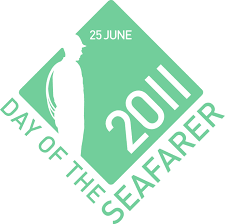Danish yachting family finally released after reported $3 million ransom is paid
Via Somalia Report
 The Danish yachting family held hostage since February have been released, the Danish Foreign Ministry said Wednesday, one day after Somalia Report reported they had been removed from the Greek-owned, Panama-flagged vessel, MV Dover, and that a ransom was said to have been paid.
The Danish yachting family held hostage since February have been released, the Danish Foreign Ministry said Wednesday, one day after Somalia Report reported they had been removed from the Greek-owned, Panama-flagged vessel, MV Dover, and that a ransom was said to have been paid.
The seven hostages are "well" given the circumstances, the foreign ministry said, and are expected back in Demark shortly. A source at the Danish Embassy in the Kenyan capital Nairobi told Somalia Report they were already travelling back to their home country.
On Tuesday, a pirate named Mohamed Ahmed, told Somalia Report that the seven Danes were put on a small boat at 8am, and that it was his understanding that a $3 million dollar ransom had been paid for them. He said he had also been told they were to be delivered to a warship – possibly Danish – that was in the vicinity of Rasu Bina village, where the MV Dover is anchored.
However, there was initially no independent confirmation of the ransom, and NATO and EU NAVFOR both told Somalia Report they had not heard of any such payment. NATO said that there was no Danish warship under assignment to the anti-piracy mission following the end of the Esbern Snare’s deployment, and the Danish navy also said it was unaware of any release.
The release of the Danes was not in line with what many sources said was the expected deal, which was that the Danes would be released at the same time as the MV Dover, upon which the hostages have been held for a large chunk of their captivity.
$3.5 million dollars was delivered several weeks ago, and another $3 million was to be delivered to complete the deal, several sources told Somalia Report. The release was due to have been completed before the end of Ramadan. It is not clear if the money Ahmed referred to was freshly delivered cash.
The Danish family consisting of Jan Quist Johansen, his wife, their three children, and two other adults were taken hostage by armed pirates on February 24, 2011 while on a world tour aboard a Danish-flagged sailing yacht SY ING.
The 43-foot sailboat was attacked approximately 600 miles east of Somalia in the Indian Ocean. They had been planning to enter the Mediterranean through the Suez Canal from the Red Sea. Jan Quist Johansen, his wife Birgit Marie Johansen, their sons Rune and Hjalte and daughter Naja, were captured along with the two adult Danish crew members when their 43-foot (13-meter) yacht was seized by pirates.
During their days in captivity, some of the hostages were reported to be suffering from various ailments.
The Danish yacht was hijacked two days after four US citizens aboard another hijacked sailing yacht, SY Quest, were shot dead, reportedly by their captors as US naval forces closed in.
Puntland security forces attempted but failed to rescue the hostages in March when they were held ashore, forcing the pirates to move them to the MV Dover. A Danish negotiation team camped in the port town of Bosaso and held several meetings trying to secure the release of the hostages. Several traditional elders from Bari region were also sent to the area as part of the negotiation team.
Danish Foreign Minister Lene Espersen told Danish news agency Ritzau that Denmark doesn't pay ransom "as a matter of principle," adding it was the family, not the Foreign Ministry, that had been negotiating with the pirates. The family was "advised by professional negotiators," she said, according to Associated Press.
Danish Prime Minister Lars Loekke Rasmussen told public broadcaster DR that the Danes were on their way back in a chartered airplane paid for by their insurance company. Loekke Rasmussen said their release came after "a long period of negotiations."
The Johansens are from Kalundborg, 75 miles (120 kilometers) west of Copenhagen. They set out on their round-the-world journey in 2009.
Andrew Mwangura, a regional maritime expert and maritime contributor to Somalia Report, said a flurry of ransom deals and the ending of the monsoon season meant it was likely that the pirates would resume their hijacking spree after a lull due to the bad weather.
"The seas have flattened after the monsoon, so we are expecting a surge in attacks again. They have to release vessels so they can hijack and (have room to) anchor others," Mwangura said.
OCEANUSLive.org


Information, Security, Safety; Shared
Submitted by Team@oceanuslive.org